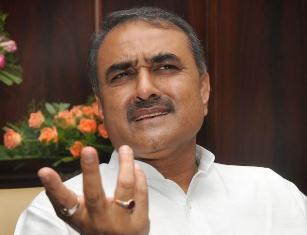
Mumbai, July 21: The Nationalist Congress Party (NCP), which pulled out of the UPA government in protest against the way the party was treated by the Congress, on Saturday said it will remain an ally of the ruling coalition.
Talking to reporters at the Mumbai airport after his arrival from Delhi with NCP supremo Sharad Pawar, Praful Patel said, “NCP is part of the UPA and will remain so.”
NCP, a stable ally of Congress for the last eight years, created a crisis of sorts for the government when Mr. Pawar, Minister for Agriculture, sent a one line communication to the Prime Minister expressing his decision to quit along with Mr. Patel, Minister for Heavy Industry.
Mr. Patel dismissed suggestions that the NCP was resorting to pressure tactics.
“We have already spoken to UPA chairperson Sonia Gandhi and no top leader of the Congress has said we are pressurising the UPA,” he said.
“If any leader in the Congress says this is pressure tactics, it’s not right,” he said.
Mr. Pawar did not speak to the media.
State NCP chief Madhukar Pichad and other senior party ministers are expected to call on Mr. Pawar at his residence later in the day, where he will apprise them of the developments in Delhi and discuss the political situation in the state, NCP sources said.
Mr. Pawar had informed Ms. Gandhi that NCP, which has nine members in the Lok Sabha and seven in the Rajya Sabha, will stay part of UPA.
During his discussion with both the Prime Minister and the UPA chairperson, Mr. Pawar had raised issues of lack of coordination and consultation by Congress with allies and governance issues like excess food subsidy at the cost of funding for water projects.





Comments
Add new comment